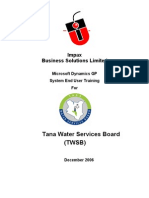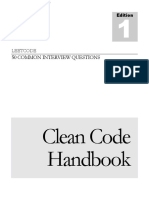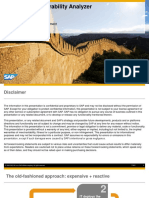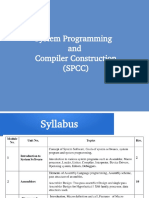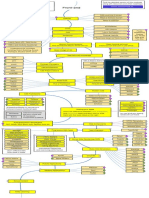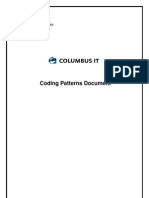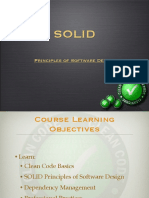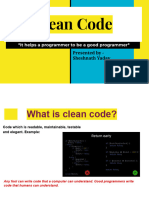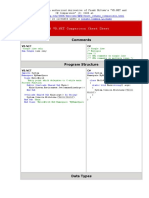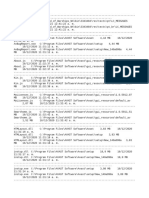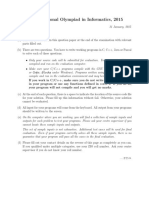0% found this document useful (0 votes)
231 views17 pagesSAP ABAP Clean Code
SAP ABAP Clean Code(1)
SAP ABAP Clean Code(1)SAP ABAP Clean Code(1)SAP ABAP Clean Code(1)SAP ABAP Clean Code(1)
SAP ABAP Clean Code(1)
SAP ABAP Clean Code(1)SAP ABAP Clean Code(1)SAP ABAP Clean Code(1)SAP ABAP Clean Code(1)
SAP ABAP Clean Code(1)
SAP ABAP Clean Code(1)SAP ABAP Clean Code(1)SAP ABAP Clean Code(1)SAP ABAP Clean Code(1)
Uploaded by
vaibhav.sharma.dmsCopyright
© © All Rights Reserved
We take content rights seriously. If you suspect this is your content, claim it here.
Available Formats
Download as PDF, TXT or read online on Scribd
0% found this document useful (0 votes)
231 views17 pagesSAP ABAP Clean Code
SAP ABAP Clean Code(1)
SAP ABAP Clean Code(1)SAP ABAP Clean Code(1)SAP ABAP Clean Code(1)SAP ABAP Clean Code(1)
SAP ABAP Clean Code(1)
SAP ABAP Clean Code(1)SAP ABAP Clean Code(1)SAP ABAP Clean Code(1)SAP ABAP Clean Code(1)
SAP ABAP Clean Code(1)
SAP ABAP Clean Code(1)SAP ABAP Clean Code(1)SAP ABAP Clean Code(1)SAP ABAP Clean Code(1)
Uploaded by
vaibhav.sharma.dmsCopyright
© © All Rights Reserved
We take content rights seriously. If you suspect this is your content, claim it here.
Available Formats
Download as PDF, TXT or read online on Scribd
/ 17







